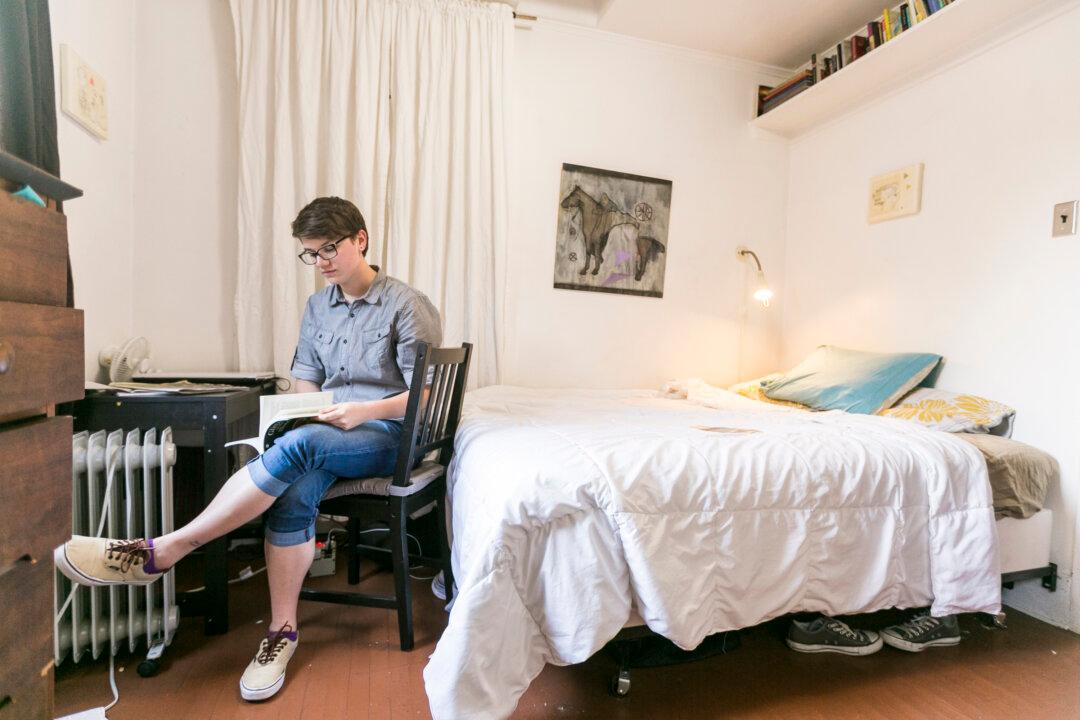The vast majority of Airbnb listings are illegal, and “multi-million dollar businesses” of illegal hotels are being run out of the most “gentrified neighborhoods” of New York City, according to a report Attorney General Eric Schneiderman released Oct. 16.
Airbnb, the home-sharing app that facilitates short-term rental units, helps New Yorkers pay their rent, and 87 percent of hosts only rent their own home, according to the San Francisco-based rental platform.
The report, “Airbnb In The City,” seems to dispute many of the statistics and claims Airbnb makes.
Numbers may not lie, but limited statistics do not tell the whole story either.
The majority of Airbnb users may only rent out their own apartments, but a very active minority account for most of the Airbnb activity in New York City.
The report points out that Airbnb has made almost $40 million from illegal transactions.
Over the course of the year, Airbnb and Schneiderman have clashed several times in an attempt to work out a regulatory framework that would allow the company to work in New York City.
During the summer, Airbnb agreed to turn over anonymous data on its NYC hosts and the report reflects subpoenaed data from Jan. 1, 2010 to June 2, 2014.
Commercial Users
A single Airbnb host made $6.8 million in less than five years, according to the attorney general’s report. The user had 272 different listings.
Far from the New Yorkers trying to make ends meet appearing in Airbnb subway and video ads, some of the hosts are actually large, commercial operations.
Over 100 users each had more than 10 apartments they regularly rented out. These users booked over 47,000 reservations for about $60 million together in four years.
While these users only make up 6 percent of NYC hosts, they accounted for 36 percent of transactions and 37 percent of total collected revenue ($168 million).
Airbnb is aware of bad actors—when Schneiderman subpoenaed the company earlier this year, at first Airbnb refused to give the office its data and said it could self-regulate.
The company deleted 2,000 listings it determined were illegal and appealed the subpoena.
Later, after the company agreed to release the data, the attorney general’s office found another 100 or so users suspected of running illegal hotels.
Because the data goes back to 2010, many of the most active hosts may no longer still be using Airbnb.
Illegal Listings
About 72 percent of Airbnb listings are illegal.
There is a New York state law that prevents renting out many types of apartments for less than 30 days if the owner is not present. Zoning laws separate parts of buildings for residential use from commercial use (like hotels).
Several units were also found to be hostels, with up to 13 people booking a single unit for multiple nights.
“We must ensure that, as online marketplaces revolutionize the way we live, laws designed to promote safety and quality-of-life are not forsaken under the pretext of innovation,” Schneiderman said in a press release.
“The joint city and state enforcement initiative is aimed at aggressively tackling this growing problem, protecting the safety of tourists and safeguarding the quality-of-life of neighborhood residents.”
The report also points out that while Airbnb boasts about enticing tourists to stay in the outer boroughs and see more of the city, its revenue reflects otherwise.
Over 40 percent ($187 million) of host revenue came from units in just three popular Lower Manhattan neighborhoods: Greenwich Village/SoHo, Chelsea/Hell’s Kitchen, and Lower East Side/Chinatown.
All reservations made in Queens, the Bronx, and Staten Island combined added up to just 3 percent of the total host revenue.
Anti-Sharing
Andrew Rasiej, chairman of NY Tech Meetup, said regulatory clashes like these send a bad message to entrepreneurs; that it signals New York City is not the place to go if you have a sharing startup.
“All legislative, regulatory frameworks need to be reconsidered in our hyper-connected economy,” Rasiej said. “It’s where the world’s going.”
He does not fault the attorney general for enforcing the law, but he does not fault Airbnb for the illegal hotels either.
In the past few weeks, the issue of whether Airbnb encourages illegal hotels has become very heated, with politicians and housing advocates launching their own ad campaigns against Airbnb usage.
While the illegal hotel operators should still be prosecuted, Airbnb has just been caught in the crossfire, according to Rasiej. “Airbnb did not set out to break the law,” Rasiej said.
The company is incredibly popular in New York City and it is unlikely to go away. There were 2,652 units rented through Airbnb in 2010, and 16,483 in just the first five months of 2014.
Sharing companies like Airbnb are putting millions into lobbying for regulatory changes in cities worldwide.
San Francisco recently passed legislation to make home sharing legal. The United Kingdom recently announced a plan to become the global center for the sharing economy.
“I think eventually Airbnb-like services will be the norm and the regulatory framework will adjust to these realities,” Rasiej said.
“If New York doesn’t want to be known as a Balkan state, it better figure out how to get its rules and regulations to match our realities.”





